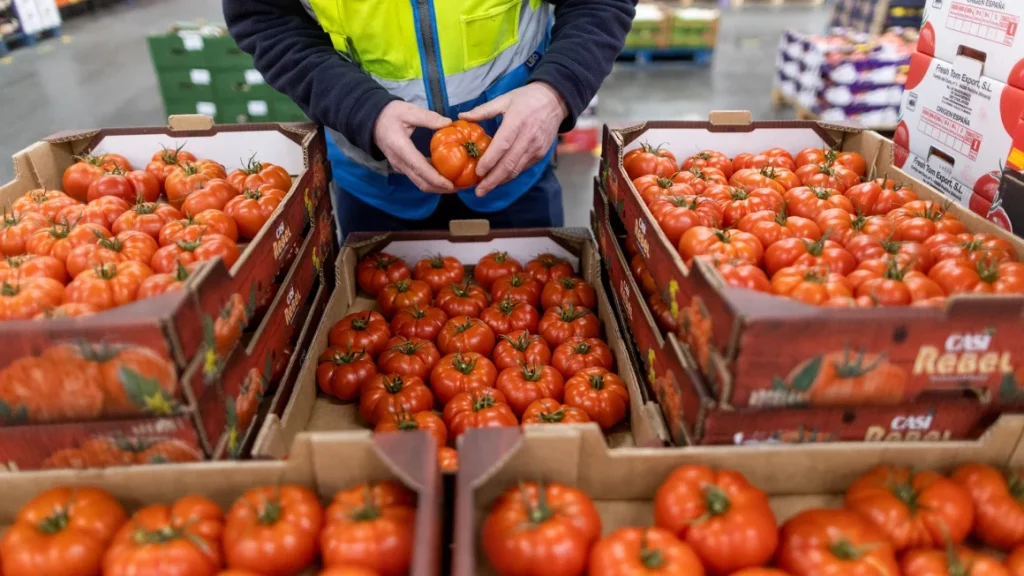
Brexit is having “significant and progressing smothering impacts” on merchandise exchange between the United Kingdom and the European Association, as indicated by another report that adds to proof of the monetary harm created by England’s exit from the world’s biggest exchanging alliance.
Scientists at Aston College in Britain assessed that somewhere in the range of 2021 and 2023, yearly UK commodities of merchandise to the EU were 17% lower than they would have been had Brexit won’t ever occur. Trades in many areas have diminished beginning around 2021, as per the report.
“The review features that the adverse consequences of (Brexit) have strengthened over the long haul, with 2023 appearance more articulated exchange declines than earlier years,” the scientists wrote in the paper distributed Tuesday.
“This recommends that the progress in UK-EU exchange relations post-Brexit isn’t just a transient disturbance yet reflects further underlying changes prone to endure.”
England’s exit from the EU — following a troublesome mandate in 2016 — was concluded on December 24, 2020, when the different sides at long last concurred an economic alliance.
The discoveries highlight the test Brexit stances to the Work government’s desires to launch monetary development, its main concern since taking power following a public political race in July.
UK State leader Keir Starmer said for the current week that he would focus on financial development in the public authority’s impending spending plan, because of be disclosed one month from now, however he has precluded rejoining the EU single market or customs association — measures that could assist with that objective.
As per official figures, trades, split generally similarly among labor and products, make up close to 33% of UK GDP and the EU represents 48% of the country’s merchandise sends out.
“The UK-EU exchange relationship stays urgent for the two players,” Tuesday’s report said, adding that the relationship “supports” financial security and development.
The report shows a precarious decrease in the range of English products sent out to the EU, with private companies in enterprises, for example, food and dress frequently among those leaving trades because of inflated expenses and formality.
As indicated by the review’s lead creator, Teacher Jun Du, the post-Brexit economic accord has “presented significant obstructions” to UK-EU exchange.
To further develop exchange ties, the specialists suggest the public authority focus on “area explicit” arrangements in regions like agribusiness, smooth out customs methods utilizing advanced innovation and guarantee nearer administrative arrangement with the EU.
“Without pressing approach mediations, the UK’s monetary position and spot in the worldwide market will keep on debilitating,” Du said.
The report is the most recent piece of examination to feature the adverse consequences Brexit has had on the UK economy. As per the UK in a Changing Europe think tank, between the 2016 mandate and July last year, Brexit had conveyed an expected hit to UK Gross domestic product of somewhere in the range of 2% and 4%.
Over an extended time, the new exchanging relationship is supposed to diminish England’s result by 4% contrasted and what it would have been assuming the nation had stayed in the EU, as per the Workplace for Spending plan Liability, which produces financial figures for the public authority.
Sophie Solidness, head financial specialist at the Goal Establishment, a research organization, posted on X Tuesday that the Aston College research illustrated “the monetary case for a fast however aggressive UK-EU reset.”
A representative for the UK government said: “We will attempt to work on our exchange and speculation relationship with the EU and destroy superfluous exchange obstructions, while perceiving that there will be no re-visitation of the single market, customs association or opportunity of development.”
While merchandise products to the EU have declined, commodities of administrations to the coalition are at a record high, as per the public authority, hitting £172 billion ($227 billion) over the a year to Spring.







